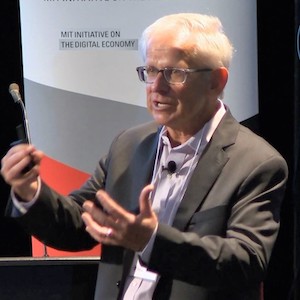 I’ve been in New Zealand this week, meeting with government, academic, and industry leaders to discuss the IT challenges ahead - social networking-based teamwork for health, mobile applications, precision medicine analytics for decision support, and cloud computing all within a framework of protecting privacy. I believe that New Zealand has a unique opportunity to leapfrog the rest of the world with healthcare IT breakthroughs that show the rest of us what is possible from a 4.5 million person learning lab. Why? The perfect storm for innovation requires alignment of technology, psychology, and implementation. New Zealand is divided into 20 District Health Boards which improve the health of their populations by delivering high quality and accessible health care...
I’ve been in New Zealand this week, meeting with government, academic, and industry leaders to discuss the IT challenges ahead - social networking-based teamwork for health, mobile applications, precision medicine analytics for decision support, and cloud computing all within a framework of protecting privacy. I believe that New Zealand has a unique opportunity to leapfrog the rest of the world with healthcare IT breakthroughs that show the rest of us what is possible from a 4.5 million person learning lab. Why? The perfect storm for innovation requires alignment of technology, psychology, and implementation. New Zealand is divided into 20 District Health Boards which improve the health of their populations by delivering high quality and accessible health care...
 Value for customers is created differently on platforms than by traditional product/service business models. Today we’ll present and discuss the metaphor of how traditional businesses can be thought of as “pipelines” and how these pipes differ from digital platforms. This post is the first in a new series: “The New Rules of Healthcare Platforms.” We’ll be writing about platform thinking, new mental models, and the new economics of platform business models and strategy. We’ll have at least seven posts to explain these new rules. You’ll have some unlearning to do. We’ll illustrate how platform business models are fundamentally different than traditional product/service business models. To understand platforms, we need to change more than just our thinking—we need to learn new rules about how the digital world works and how platforms fit in.
Value for customers is created differently on platforms than by traditional product/service business models. Today we’ll present and discuss the metaphor of how traditional businesses can be thought of as “pipelines” and how these pipes differ from digital platforms. This post is the first in a new series: “The New Rules of Healthcare Platforms.” We’ll be writing about platform thinking, new mental models, and the new economics of platform business models and strategy. We’ll have at least seven posts to explain these new rules. You’ll have some unlearning to do. We’ll illustrate how platform business models are fundamentally different than traditional product/service business models. To understand platforms, we need to change more than just our thinking—we need to learn new rules about how the digital world works and how platforms fit in.
 Apex Data Solutions, a pioneer and leader in enterprise architecture and interoperable platforms, point-of-service data capture, data management, and federation solutions, today announced its experts will be giving two presentations at the 2016 OSERHA Open Source Summit, taking place June 27th- 29th in Bethesda MD. The first session, “Viva La VistA Revolution! - The Democratization of VistA and Progress toward an Interoperable Enterprise Architecture, will be led by Bob Calco (co-founder), Chief Architect & Lead Developer at Apex Data Solutions. The second session, “VistA js - “Data Federation in the VA Today,” will be given by Guy Esten...
Apex Data Solutions, a pioneer and leader in enterprise architecture and interoperable platforms, point-of-service data capture, data management, and federation solutions, today announced its experts will be giving two presentations at the 2016 OSERHA Open Source Summit, taking place June 27th- 29th in Bethesda MD. The first session, “Viva La VistA Revolution! - The Democratization of VistA and Progress toward an Interoperable Enterprise Architecture, will be led by Bob Calco (co-founder), Chief Architect & Lead Developer at Apex Data Solutions. The second session, “VistA js - “Data Federation in the VA Today,” will be given by Guy Esten...